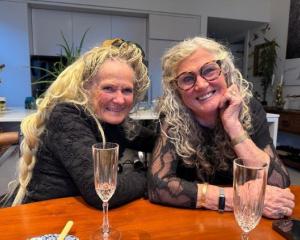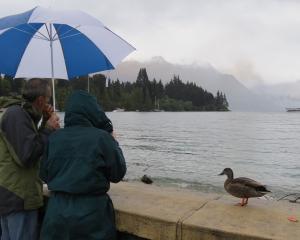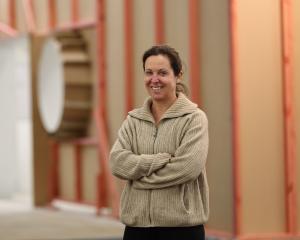Twenty-four hour sunlight, -35degC temperatures, limited technology and weird and wonderful wildlife are among the more unusual aspects of life in the Antarctic, which Luggate builder Darryn Slee is adjusting to during his 13-month stint on the continent.
Mr Slee (46) has been working at Scott Base since October 1, after flying there from Christchurch on a United States Air Force C-17 Globemaster.
The process to get there began three years ago when he spotted an advertisement for a carpenter's job on Antarctica New Zealand's website.
''Antarctica always interested me with stories about Scott and Shackelton and its isolation.''
A couple of applications later and a string of interviews, medical clearances and psychology tests, and Mr Slee got the job, which includes general maintenance of Scott Base, firefighting duties and supporting field science.
The first thing that struck him on arrival was the vastness and, unsurprisingly, the temperature.
''It was about 15 degrees on the plane and you step off to minus 25.''
The coldest temperature he had experienced there was -35degC, although it rose as high as 0degC some days.
Round-the-clock daylight had also taken some getting used to.
''It's quite strange to have bright sun at midnight.''
In the summer there were about 35 base staff, which dropped to 10 in the winter, Mr Slee said.
At times there could be up to 90 people on the base with scientists and their support teams and Mr Slee had acquired some ''great mates'' from a wide variety of backgrounds on the ice.
A day off with ''a big meal and a few beers'' was enjoyed by all the workers at Christmas, while the New Year was brought in by a bagpipe-playing engineer who performed outside at midnight.
Mr Slee's wife and two children - aged 22 and 17 - are still in Luggate and he will not see them for the duration of his stay. Even via Skype.
''We have internet here but it's very slow and YouTube and many other sites are blocked.
''But we have cheap phone calls back to New Zealand.
''We get the ODT online so catch all the news daily. There's no TV here.''
Although the job was not particularly well paid, food, accommodation, petrol and cellphone costs were included.
''The only thing we have to supply are our toiletries and clothes around the base.
''We get all the gear needed to be outside.''
There were ''plenty of interesting things'' to keep Mr Slee challenged, he said.
''Like trying to do your normal job in an abnormal place and sometimes you have to think outside the square to get things done. Getting to help and talk to scientists about their work is cool.
''I got to help clean and dissect some toothfish for a couple of days. One fish weighed 49kg.
''We also get to visit Scott's and Shackelton's huts. They have been restored and still have everything inside including food and clothing. Being so cold and dry and no bugs down here helps preserve everything.''
But probably the ''coolest thing'' he had done since arriving was visit an Adelie penguin rookery at Cape Bird.
''They are some of the funniest birds I have ever seen ... watching them is better than TV.''












